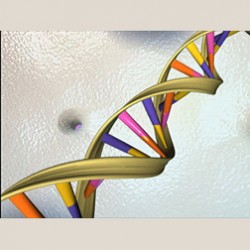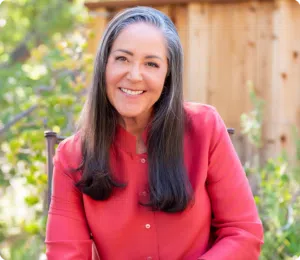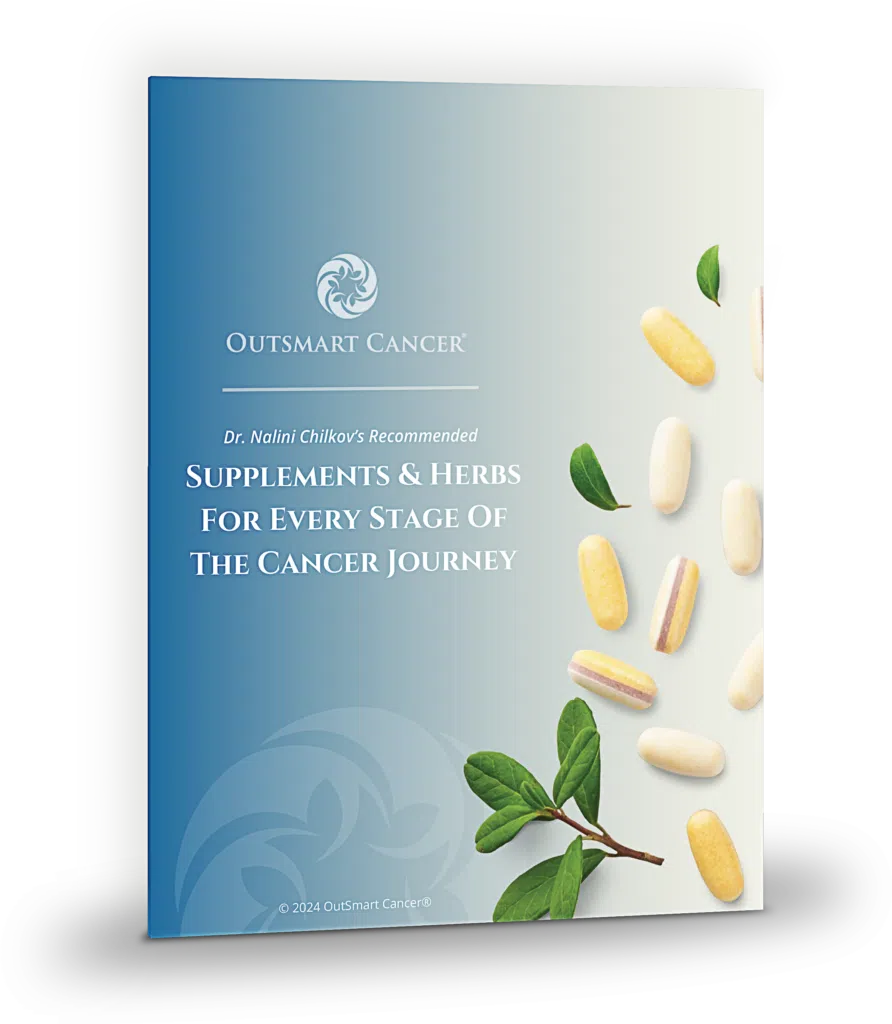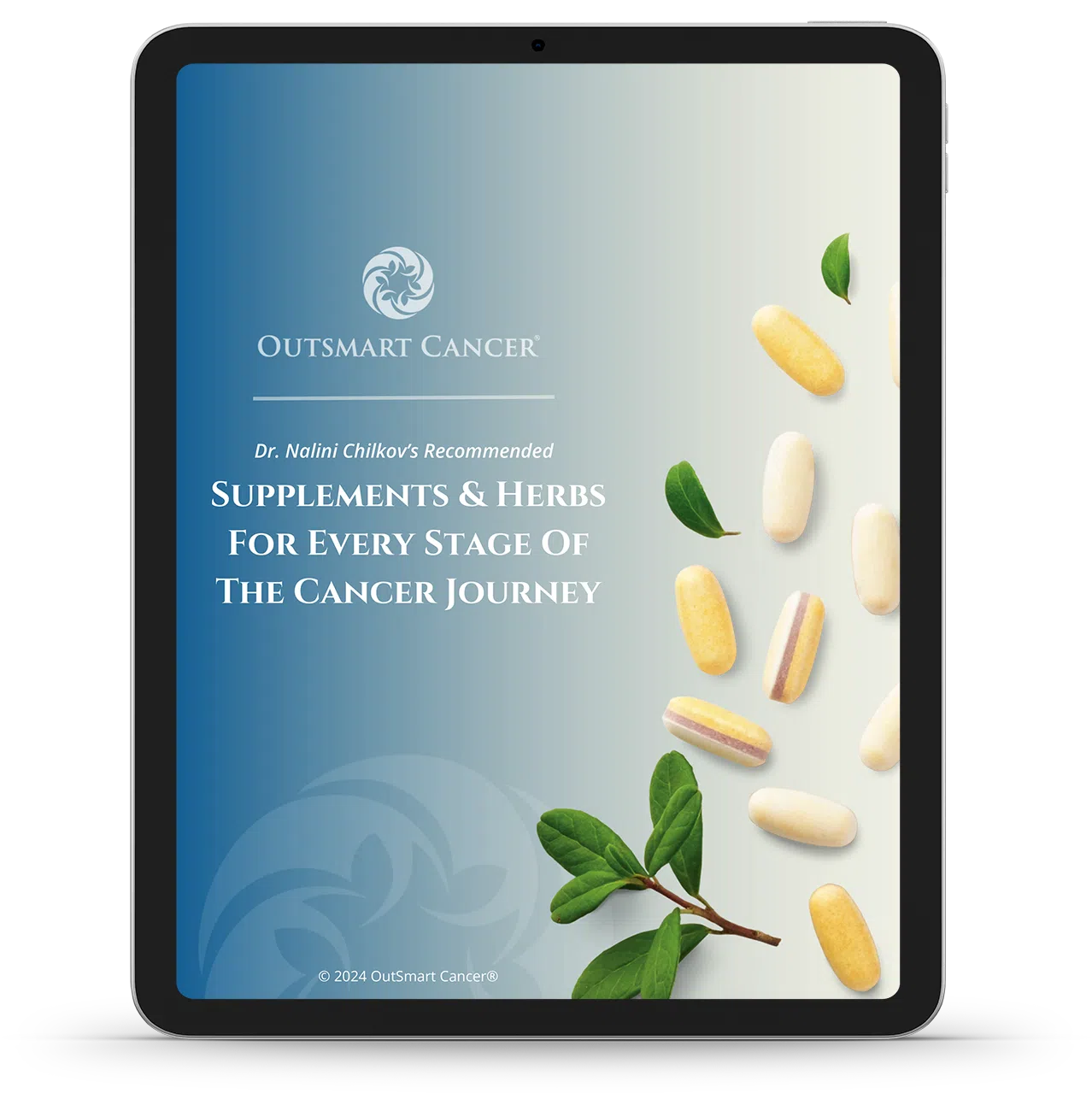
Why does a woman with no family history of breast cancer and no obvious risk factors for breast cancer succumb to the disease? What happened to her? Today 1 in 8 women in the US is diagnosed with breast cancer. Will you be one of them?
The development of cancer is complex. Many factors contribute to the “perfect storm” of conditions that lead to the presence of cancer cells and your body’s inability to stop them from growing.
Discovering all the factors that contribute to the development of cancer in any one individual is not simple. It is complex. And it is usually not exactly the same set of factors for each and every person. Learning more about the toxins in your environment and learning more about your genetics can help you to take steps to stay cancer free.
There are two primary contributors to the development of cancer: the combination and interaction of your environment and your genetics.
When toxic chemicals in the environment interact with your genetic material, your DNA, which runs your physiology and your immune responses, these toxins can alter and damage normal healthy cell functions. Under these conditions cancer may be primed to develop in your body.
It is well known that certain environmental toxic exposures increase cancer risk. For example, we know that sun exposure can cause skin cancer and that smoking tobacco can cause lung cancer.
But not everyone who spends a lot of time in the sun gets skin cancer. And not every person who smokes cigarettes gets lung cancer. Why not??? Most likely it is your genetics.
What does that mean???? Most likely the person who spends their life outside in the sun and always has a tan, but never gets skin cancer has the capacity to meet the challenge of the damage that toxic exposure to sunlight radiation causes. Perhaps that person is able to control inflammation more efficiently due to their genes. Perhaps that person has genetics which is better able to quench the increased oxidative stress that occurs with radiation exposure. Oxidative stress means that lots of free electrons are flying around in and around your cells and are primed to damage your DNA, your genetic material. When your DNA becomes damaged, your cell may lose some of its protective functions and protective intelligence. Depending upon your genetics, you may or may not be able to repair the damage or come up with sufficient protection.
For example, some people can produce more glutathione, your body’s own potent antioxidant and cell protectant inside their own cells. This is due to genetics. I may be able to make a lot more glutathione than you can. If, due to your genetics, you make a lot less glutathione in your cells you are going to have less protection from radiation, such as sun exposure and other forms of oxidative stress. Inflammation is another condition that increases oxidative stress inside the cell. What can you do to increase glutathione?? High quality whey protein can be added to your diet to enhance glutathione production. The nutritional supplement N-Acetyl Cysteine also increases glutathione inside your cells. Modern medicine actually uses N Acetyl Cysteine in some emergency rooms to protect the patient by reducing the oxidative damage caused by some toxic poisons, including tylenol (acetaminophen) poisoning.
A fair skinned individual may always get a sunburn while another person gets a dark bronze tan and rarely burns. This is due to genetics. The person who gets the tan has genetic programming that leads to the efficient production of melanin, the skin pigment that blocks the sun, your natural sunscreen and also acts as an antioxidant in the skin. It is known that early humans who roamed outside all day long near the equator had darker skin, a smart evolutionary trait to protect them from the effects of sun exposure. Over time as humans wandered the earth and migrated to northern latitudes wearing skins and furs to protect them from the cold. Farther from the equator, humans had less need for melanin rich dark skin. If your ancestors come from northern latitudes they may have fair skin and be at higher risk for skin cancer because they have lost the skin’s natural ability to protect itself from the sun by producing dark pigmentation.
The tars and resins and nicotine in tobacco can cause lung, mouth and throat cancers. However, you may be not able to repair the damage caused by these chemicals while your best friend with different genetics may be able to repair damaged DNA and metabolize or detoxify those noxious substances and transform them into less caustic and damaging by products or metabolites. You will have a higher risk of getting cancer from smoking, while she may have a lower risk due to different genetics.
We have a large and diverse group of enzymes in our bodies called the Cytochrome P450 system that is designed to transform toxic chemicals in our cells into non toxic less damaging, less toxic forms that won’t damage our tissues and our DNA. According to your genetics, you may have different versions of these enzymes. One person may be a lifelong smoker and never get lung cancer, while another person will develop cancer due to a difference in the P450 enzymes they make in their body. Blood tests are now available to look at these important detoxification enzymes. You may be able to learn which chemicals and drugs are the most problematic and dangerous for you. This ty often referred to as genomic testing.
Another chemical that is ubiquitous in the modern industrial environment, benzene, is known to be a carcinogen, a cancer causing chemical. Studies of workers exposed to high levels of benzene, such as those in the chemical, shoemaking, and oil refining industries demonstrate higher rates of cancer. Yet, not all workers in these industries get cancer? Why not? The answer is “Different Genes”. Some people will have more efficient and effective cell protection and some people will have better P450 detoxification functions than others. Wouldn’t it be good to know if choosing a certain profession, industry or hobby would increase your chances of getting cancer?
Genetics determines how an individual woman will metabolize her own estrogen, the estrogen made inside her own body. Some women will metabolize their own estrogen into highly cancer causing metabolites and other women will not. We can actually measure this in the urine. For a woman who has genes that tip her toward cancer and other diseases related to too much estrogen exposure because of the way she processes their own hormones, if we identify this trait and susceptibility by testing, then we can do something about it. We can shift the way that woman handles her own estrogen to go down a less cancer causing pathway. It is well known that plant chemicals call sulphoraphanes will change how a woman metabolizes her own hormones. Sulphoraphnaes are found in high amounts in in the cabbage family vegetables and are especially high in kale and broccoli. There are also nutritional supplements with sulphoraphanes in capsule form, for the woman who does not eat these foods on a regular basis in her diet.
In medicine today we are able to test for many of these enzymes and genetic traits. By discovering the unique patterns in your genetics you can discover where you are most vulnerable. This may mean that you decide to avoid exposure to certain chemicals that will be more toxic and damaging for you due to your genetics. You may decide not to live near an oil refinery or avoid a hobby in which you would be using certain glues, resins or dyes. Or you may decide to change your diet and add foods that are high in potent plant antioxidants and anti cancer chemicals that alter hormone metabolism. Nature has provided us with a plethora of foods that have anti-cancer activity. Your food is talking to your genes everyday. What you eat matters.
I have written a free 30 page report: Three Dangerous Cancer Survival Myths Revealed: What Your Doctor Is Not Telling You in which I list over fifty foods that are known to have anticancer properties. I have also included steps you can take to make your home a non toxic cancer free zone. Get instant access to this free report now and start protecting yourself and your family from cancer today.
You May Also Like:
Breast Cancer Rates are Rising: Protect Yourself
Can Tumeric Reduce the Spread of Breast Cancer?



